|
 Secure Site
Secure Site
|
 |
Archive for the 'sleep' Category
 Perfect Gift Alarm Clock - Zen Chime Clock “The Zen Alarm Clock,” uses soothing acoustic chimes that awaken users gently and gradually, making waking up a real pleasure. Rather than an artificial recorded sound played through a speaker, the Zen Clock features an alloy chime bar similar to a wind chime. When the clock’s alarm is triggered, its chime produces a long-resonating, beautiful acoustic tone reminiscent of a temple gong. Then, as the ring tone gradually fades away, the clock remains silent until it automatically strikes again three minutes later. The frequency of the chime strikes gradually increase over ten-minutes, eventually striking every five seconds, so they are guaranteed to wake up even the heaviest sleeper. This if the perfect gift for those who are hard to find presents for…
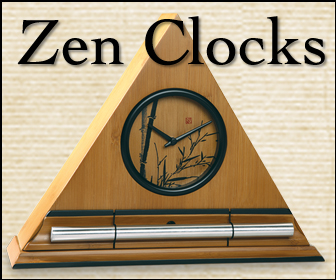 Perfect Gift Alarm Clock - Makes Waking a Soothing Experience Now & Zen Headquarter Store
1638 Pearl Steet
Boulder, CO 80302
(800) 779-6383
Posted in Chime Alarm Clocks, sleep, Well-being
 Waking up in the morning should be as pleasant as falling asleep at night. The Zen Alarm Clock's gradual, gentle awakening is transformative. Kitagawa Utamaro Ukiyoe by YukiSakuma Close your eyes, breathe deeply, and envision the space where you feel the greatest sense of joy and calm. Is it a spare, expansive beach? A lush garden? A tranquil forest? More than likely, that’s your ideal bedroom.
“If the place you feel the most peaceful is in the mountains, then include things like a photograph of mountains, essential oils of fir or juniper in a diffuser, or a bowl of pine needles,” says feng shui teacher Denise Linn, author of Sacred Space. “You won’t be able to re-create the exact environment, but there are aspects you can incorporate.”
Reinventing your bedroom as a place of beauty and serenity sets up a lasting source of renewal and replenishment, both spiritual and physical. “The bedroom is the most important place in your home for enhancing your sense of well-being,” says Linn.
No need for an expensive, time-draining makeover. Here are 10 simple ways to create a dream bedroom that nurtures your health and refreshes your spirit.
1. Soften the Colors
Bedrooms are meant to be “yin rooms,” which facilitate passive, feminine spirit rather than generate active, masculine yang energy. “Yin rooms should be calm, so you can walk into them and relax,” says Susan Levitt, author of Taoist Feng Shui. She suggests painting walls in pastels such as lavender, beige, or off-white, or in muted flesh tones like cream, taupe, and rose.
Whatever hue you choose, make it nontoxic. Many paints contain volatile organic compounds, which produce hazardous fumes when wet and may continue to release those fumes for years after drying. Debra Lynn Dadd, author of Home Safe Home, recommends buying a water-based paint that’s low in VOCs. “Brand-name paint stores such as Sherwin-Williams and Benjamin Moore carry their own nontoxic paints,” says Dadd, who also suggests sleeping elsewhere for three or four days after painting a bedroom.
Another option is using Anna Sova Luxury Organics wall finish, manufactured with up to 99 percent food-grade ingredients (from $49 a gallon; annasova.com). To enhance the soothing effects of your new colors, add a bottle of Anna Sova’s Organic Aromatherapy formula ($12). Stirred into the wall finish before painting, these essential-oil-based blends scent your room with lemon, vanilla, orange and clove, or sandalwood.
2. Clear the Clutter
You needn’t sleep in a Zen den, but a clean, open space allows you to rest better at night. Throw out—or put away—items you haven’t read, worn, or looked at in a few years. “If you don’t love it and you haven’t used it in several years, get rid of it,” says Linn. “Reducing clutter is modern-day alchemy. Anything you don’t love only drags you down.”
And don’t try to hide the clutter under your bed—even if your frame has built-in drawers, store only bedding and pillows there, Levitt advises.
Bookworms may want to keep beloved novels at hand, but too many tomes can be overwhelming. Instead of having piles everywhere, keep one or two books out in your bedroom and store the rest on a book shelf, says Levitt. Don’t pack them too tightly; leaving a little free space gives you room to grow and symbolizes the acceptance of new things in your life.
3. Purify Your Pillows
One of the best ways to purify your sleeping space is also the cheapest: Replace your current pillow with an organic cotton or wool pillow or cushion from Abundant Earth (abundantearth.com), Real Goods (realgoods.com), orRawganique.com. “Your nose is right there breathing in fumes from the foam,” says Dadd. “For less than $60, you can make a significant change in your health.” Wool offers additional benefits to allergy sufferers, since it’s naturally resistant to dust mites.
4. Tame the Decor
 The Zen Alarm Clock transforms mornings, awakening you gradually with a series of gentle acoustic chimes Once you use a Zen Clock nothing else will do Displaying photos of loved ones brings positive energy into a bedroom, as long as the wall decor is kept simple. “Don’t put up too many pictures,” says Levitt. “One per wall is plenty.” And avoid art with violent or chaotic imagery. “In feng shui, the first thing you see when you wake up is very important,” notes Linn. “If it’s a great piece of modern art, but the imagery is jagged, that’s not great for your energy.”
Some consultants advise against mirrors in the bedroom, but Levitt says they can open up the space. “Just make sure they’re not cracked, glazed, or tiled,” she adds. “Cracks show breakage and flaws; glaze doesn’t reflect clearly; and tiles break up your image, as though it’s hard to bring together different aspects of your personality.”
5. Dim the Lights
Street lamps and other outdoor lighting can wreak havoc on your sleep cycle because melatonin, the hormone that helps govern sleep, responds to light and darkness. For soundest snoozing, dim your bedroom at night with a thick, dark cotton canvas, and let in the morning sun when it’s time to wake; this will help you stay synchronized with your own body rhythms.
Lighting defines a room’s aesthetics as well. Overhead lights lack atmosphere, so install a dimmer switch or use small lamps. “Overhead lighting doesn’t belong in the bedroom,” says Dadd. “I prefer gentle lighting that puts you in an inward-looking frame of mind.”
6. Send In the Scents
Filling the air with a luscious yet subtle fragrance makes your bedroom nearly spa-like. Linn suggests adding a few drops of calming essential oil like neroli, rose, or jasmine to an aromatherapy diffuser (available from Aura Cacia for $15; frontiercoop.com), while Levitt recommends chamomile, lavender, or clary sage.
7. Clear the Air
Keeping your windows open works wonders toward purifying indoor air of dust, mold, pet dander, and chemicals from household cleaners. “Fresh outdoor air is essential for good health,” says Dadd.
Once winter rolls around, however, letting in that oh-so-cold fresh air may not seem as appealing. “But even if you crack open your window just an inch, it can help,” says building biologist Athena Thompson, author of Homes That Heal. “If you have one or two people sleeping in a closed room for eight hours, it depletes the air of oxygen and increases carbon dioxide, so you wake up feeling sluggish and headachy.” Add an extra blanket or two on chillier nights.
8. Power Down
Television picture tubes, wireless Internet connections, electrical wiring, and cellphones emit electromagnetic fields that may contribute to frequent waking, aches and pains, and muscle spasms, according to Lawrence Gust, a building biology consultant in San Marcos, Calif. To reduce your EMF load, remove electric cords and devices from the bedroom—or at least from within 8 to 10 feet of the bed—and disconnect Wi-Fi and multi-handset cordless phones.
“The time that you spend in your bedroom should allow for your body to be more connected with its own electromagnetic fields, rather than those coming from electronic devices,” says Dadd.
9. Modify the Mattress
“The bed is where you go to spend your key rejuvenating time—it’s where you wipe the slate clean,” Thompson says. But do you know what’s underneath you?
A typical foam mattress is made from petrochemical derivatives with fire retardants and other chemicals added, all of which can be absorbed through the skin. Thompson prefers mattresses made of organic cotton, pure grown wool, or natural rubber. Try Janice’s Superior Organic Cotton Mattress ($1,495 for queen-sized; janices.com) or Lifekind’s Natural Rubber Mattress ($1,595 queen;lifekind.com). If you’re not ready for such a major purchase, place a barrier cloth (available from Janice’s; queen-sized organic barrier, $269.95, or organic cover, $189.95) over your existing mattress. “It will give you a layer of natural fibers, which is more comfortable and helps you sleep better,” says Dadd.
10. Remake Your Bed
 Wake up with gradual, beautiful acoustic chimes. The Zen Alarm Clock transforms your mornings and gets you started right, with a progressive awakening When shopping for new bedding, look for 100 percent natural fibers–ideally organic cotton or organic hemp—at retailers like Gaiam (gaiam.com), Coyuchi (coyuchi.com), and Rawganique.com. To avoid chemically treated linens, make sure your purchases aren’t labeled “permanent press,” advises Dadd. “If you shop at stores like Bed, Bath & Beyond, the kinds of sheets that are untreated will be the jersey and flannel sheets,” she adds. For colors, opt for soothing shades like sage green and powder blue, says Levitt.
Even the purest fabrics expose you to chemicals if you launder them in perfumed detergents. “Commercial ‘fragrances’ represent anywhere from 10 to a few hundred chemicals, many of which have never been tested on humans,” says Thompson. “If you’re washing your bedding with fragranced detergents and drying them with fragranced dryer sheets every week, you’re going to be sleeping on another layer of chemicals all night.”
Clean your linens “the old-fashioned way, with baking soda or vinegar,” suggests Thompson. Or select detergents that are fragrance-free or have natural ingredients like orange peel.
Boulder, Colorado—an innovative company has taken one of life’s most unpleasant experiences (being startled awake by your alarm clock early Monday morning), and transformed it into something to actually look forward to. “The Zen Alarm Clock,” uses soothing acoustic chimes that awaken users gently and gradually, making waking up a real pleasure. Rather than an artificial recorded sound played through a speaker, the Zen Clock features an alloy chime bar similar to a wind chime. When the clock’s alarm is triggered, its chime produces a long-resonating, beautiful acoustic tone reminiscent of a temple gong. Then, as the ring tone gradually fades away, the clock remains silent until it automatically strikes again three minutes later. The frequency of the chime strikes gradually increase over ten-minutes, eventually striking every five seconds, so they are guaranteed to wake up even the heaviest sleeper. This gentle, ten-minute “progressive awakening” leaves users feeling less groggy, and even helps with dream recall.
adapted from Naturalhealthmag.com By Elizabeth Barker
 Wake up refreshed, love your alarm clock, transform your mornings with The Zen Alarm Clock's progressive awakening with gentle chimes. 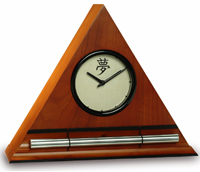 Wake up refreshed, love your alarm clock, transform your mornings with The Zen Alarm Clock's progressive awakening with gentle chimes. Now & Zen – Alarm Clocks with Gentle Sounds
1638 Pearl Street
Boulder, CO 80302
(800) 779-6383
orders@now-zen.com
Posted in sleep, Sleep Habits
 Waking up in the morning should be as pleasant as falling asleep at night. The Zen Alarm Clock's gradual, gentle awakening is transformative. Feeling isolated and disconnected from the people around you may keep you from getting a good night’s sleep, even if you’re not aware of it, a small new study suggests.
People who feel lonely tend to experience more nighttime restlessness and disruptions than their better-adjusted peers, the study found, which may partly explain why loneliness has been associated with health problems such as high blood pressure, heart disease, anddepression, says lead researcher Lianne Kurina, PhD, an assistant professor of epidemiology at the University of Chicago.
“In lab experiments, when people are intentionally woken up repeatedly, it seems to have effects on [their] metabolism,” she says. “Their insulin sensitivity goes down, almost suggesting that poor sleep could put them at higher risk of type 2 diabetes, for example.”
In the new study, published today in the journal Sleep, the link between loneliness and sleep disruptions persisted even after the researchers took into account marital status and family size. This finding underscores an important distinction between loneliness and social isolation, Kurina says: The amount of loneliness people feel ultimately depends on how they perceive their social situation, not the situation per se.
“There can be people with lots of social connections that feel terribly alone, and conversely there are people with relatively small social networks who do just fine,” Kurina says. “Different people have different needs in terms of relationships—and it’s the space between what you want and what you have that can turn into loneliness.”
The 95 participants in the study all had strong social connections, as they were part of a close-knit, rural community in South Dakota. Yet even small differences in their degrees of loneliness had an impact on their sleep.
Kurina and her colleagues asked the participants how often they felt a lack of companionship, left out, or isolated from others, and they used these responses to rate the men and women on a standard loneliness scale. Then, for one week, the participants wore a wrist device to bed each night that records body movement and sleep disruption (known as an actigraph).
 Wake up with gradual, beautiful acoustic chimes. The Zen Alarm Clock transforms your mornings and gets you started right, with a progressive awakening Each one-point increase in the loneliness scale was associated with about an 8% increase in sleep disruptions and restlessness, the researchers found, even when they controlled for age, sex, body mass index, the breathing disorder known as sleep apnea, and negative emotions such as depression, anxiety, and stress.
Loneliness did not appear to influence sleep quality or daytime sleepiness, however, which suggests that the sleep disruptions were minor. More research will be needed to determine if these low-level disruptions can have effects on health similar to those seen in experiments when volunteers are woken up, but it seems plausible that comparable health consequences could occur, Kurina says.
It makes sense that someone who feels alone and vulnerable may wake more easily throughout the night, since early humans may have evolved this tendency to protect against potential threats, the study notes. Even now, Kurina says, short-term feelings of loneliness can be healthy because they can encourage humans to make social connections. Problems can arise, however, if loneliness becomes chronic.
“People who have been very lonely for a while start to expect rejection, to the point where it can become a self-fulfilling prophecy,” Kurina says. For this reason, she adds, it isn’t always helpful to tell someone who feels isolated and insecure to just make friends, get a pet, or go on more dates.
So what’s a lonely heart to do? Begin to rebuild social connections in an emotionally safe way, Kurina suggests. “Engage in situations where you’re not necessarily expecting people to give to you, but where you’re the one giving—like volunteering, or common-interest meetings like book groups,” she says. “Slowly you’ll begin to see the world—and see your relationships—in a more positive way.”
Wake up refreshed, love your alarm clock, transform your mornings with The Zen Alarm Clock’s progressive awakening with gentle chimes.
One of the ultimate Zen like experiences is waking-up from a great slumber refreshed and energized. Your mind and body are harmoniously one, both alert and focused. Having a refreshed mind and body are two keys to a natural and Zen lifestyle. Waking up in the morning should not be a loud and abrupt awakening, but rather it should be a peaceful positive experience. The right natural alarm clock can transition your deep and tranquil sleep into a serene start to consciousness. Imagine a long-resonating Tibetan bell-like chime waking you up to a beautiful morning experience.
The right alarm clock can be the most beneficial investment for you. With our Now & Zen natural alarm clock you are awakened more gradually and thus more naturally. Now & Zen is focused on creating a naturalistic lifestyle, and our clocks are an example of our philosophy.
adapted from Health.com by By Amanda MacMillan
 The Zen Alarm Clock transforms mornings, awakening you gradually with a series of gentle acoustic chimes Once you use a Zen Clock nothing else will do  The Zen Alarm Clock transforms mornings, awakening you gradually with a series of gentle acoustic chimes Once you use a Zen Clock nothing else will do Now & Zen – The Gentle Chime Alarm Clock & Timer Store
1638 Pearl Street
Boulder, CO 80302
(800) 779-6383
orders@now-zen.com
Posted in sleep, Sleep Habits
 One of the ultimate Zen like experiences is waking-up from a great slumber refreshed and energized. Your mind and body are harmoniously one, both alert and focused. Having a refreshed mind and body are two keys to a natural and Zen lifestyle. People may be learning while they sleep, dramatically improving their memory in some cases, a new study suggests.
Although the effects on memory vary greatly and are not well understood, Michigan State University researchers said their findings reinforce the need for a good night’s sleep — something 63 percent of Americans are not getting, according to the U.S. National Sleep Foundation.
“We speculate that we may be investigating a separate form of memory, distinct from traditional memory systems,” lead researcher Kimberly Fenn, an assistant professor of psychology, said in a university news release. “There is substantial evidence that during sleep, your brain is processing information without your awareness and this ability may contribute to memory in a waking state.”
Researchers studied more than 250 people and found that some had significant enhancement in their memory, while others had no change at all. They found, however, that most participants showed improvement.
More research is needed to explore whether or not this potential memory ability could boost academic performance, the study authors said in the news release.
“Simply improving your sleep could potentially improve your performance in the classroom,” concluded Fenn.
Boulder, Colorado—an innovative company has taken one of life’s most unpleasant experiences (being startled awake by your alarm clock early Monday morning), and transformed it into something to actually look forward to. “The Zen Alarm Clock,” uses soothing acoustic chimes that awaken users gently and gradually, making waking up a real pleasure. Rather than an artificial recorded sound played through a speaker, the Zen Clock features an alloy chime bar similar to a wind chime. When the clock’s alarm is triggered, its chime produces a long-resonating, beautiful acoustic tone reminiscent of a temple gong. Then, as the ring tone gradually fades away, the clock remains silent until it automatically strikes again three minutes later. The frequency of the chime strikes gradually increase over ten-minutes, eventually striking every five seconds, so they are guaranteed to wake up even the heaviest sleeper. This gentle, ten-minute “progressive awakening” leaves users feeling less groggy, and even helps with dream recall.
 Waking up in the morning should not be a loud and abrupt awakening, but rather it should be a peaceful positive experience. The right natural alarm clock can transition your deep and tranquil sleep into a serene start to consciousness. The study was published recently in the Journal of Experimental Psychology: General.
More information
The American Psychological Association provides more information on theimportance of sleep.
– Mary Elizabeth Dallas
SOURCE: Michigan State University, news release, September 2011
Now & Zen – The Soothing Alarm Clock Store
1638 Pearl Street
Boulder, CO 80302
(800) 779-6383
orders@now-zen.com
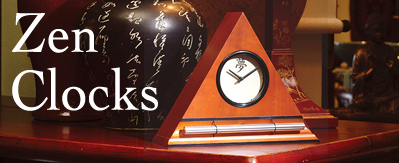 Imagine a long-resonating Tibetan bell-like chime waking you up to a beautiful morning experience.
Posted in sleep
 The Zen Alarm Clock transforms mornings, awakening you gradually with a series of gentle acoustic chimes Once you use a Zen Clock nothing else will do Deep sleep can provide much needed rest after a difficult day, but a new study suggests it can also help decrease the emotional intensity of painful experiences.
Researchers at the University of California at Berkeley found that the more time spent in REM sleep, or the dream phase of sleep, may diminish the activity of stress-related chemicals in the brain.
“The dream stage of sleep, based on its unique neurochemical composition, provides us with a form of overnight therapy, a soothing balm that removes the sharp edges from the prior day’s emotional experiences,” said Matthew Walker, a co-author of the study and an associate professor of psychology and neuroscience at UC Berkeley in a statement.
Their findings, the authors said, could help explain why people who have with post-traumatic disorder experience recurring nightmares. One of the hallmarks of the disorder is less time spent in REM sleep. As a result, the researchers believe they don’t experience the same emotional blunting brought on by adequate REM sleep. REM sleep normally makes up about 20 percent of normal sleep hours.
In the study, 35 healthy adults were split into two groups. Each group looked at 150 emotional images two different times, 12 hours apart, and an MRI measured brain activity.
Half of the participants stayed awake between each viewing, and the other half got a full night’s in between each viewing.
Those who slept had a less emotional reaction the second time they looked at the images, and the MRI showed less activity in the amygdala, the emotion-processing part of the brain.
Tests that measure brain activity while the participants slept indicated decreased activity of stress-related chemicals, which had a calming effect.
 Wake up with gradual, beautiful acoustic chimes. The Zen Alarm Clock transforms your mornings and gets you started right, with a progressive awakening “We know that during REM sleep there is a sharp decrease in levels of norepinephrine, a brain chemical associated with stress,” Walker said. “By reprocessing previous emotional experiences in this neuro-chemically safe environment of low norepinephrine during REM sleep, we wake up the next day, and those experiences have been softened in their emotional strength. We feel better about them, we feel we can cope.”
Boulder, Colorado—an innovative company has taken one of life’s most unpleasant experiences (being startled awake by your alarm clock early Monday morning), and transformed it into something to actually look forward to. “The Zen Alarm Clock,” uses soothing acoustic chimes that awaken users gently and gradually, making waking up a real pleasure.
Rather than an artificial recorded sound played through a speaker, the Zen Clock features an alloy chime bar similar to a wind chime. When the clock’s alarm is triggered, its chime produces a long-resonating, beautiful acoustic tone reminiscent of a temple gong. Then, as the ring tone gradually fades away, the clock remains silent until it automatically strikes again three minutes later. The frequency of the chime strikes gradually increase over ten-minutes, eventually striking every five seconds, so they are guaranteed to wake up even the heaviest sleeper. This gentle, ten-minute “progressive awakening” leaves users feeling less groggy, and even helps with dream recall.
Now & Zen – The Soothing Alarm Clock Store
1638 Pearl Street
Boulder, CO 80302
(800) 779-6383
orders@now-zen.com
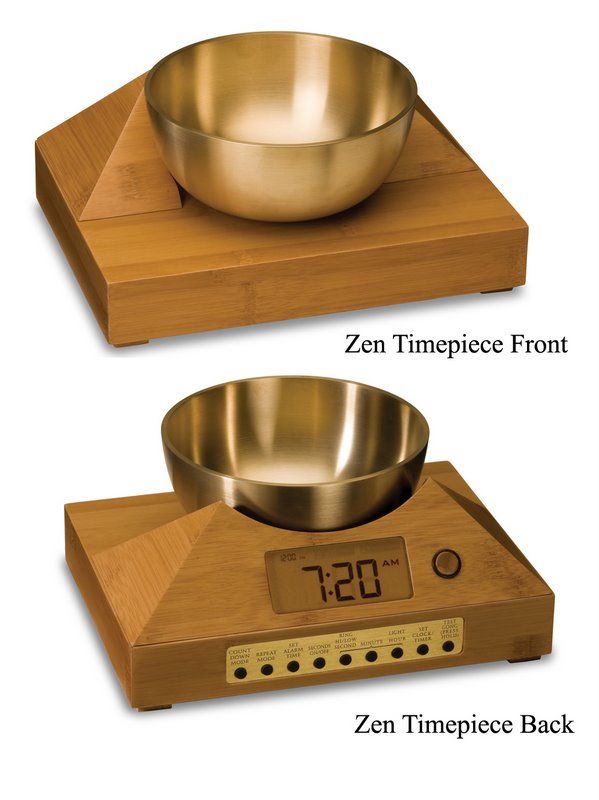 The Zen Alarm Clock transforms mornings, awakening you gradually with a series of gentle acoustic chimes Once you use a Zen Clock nothing else will do
Posted in Bamboo Chime Clocks, Dreams, sleep, Sleep Habits, wake up alarm clock, Well-being
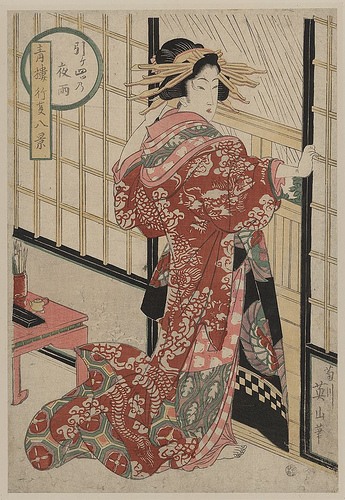 Wake up with gradual, beautiful acoustic chimes. The Zen Alarm Clock transforms your mornings and gets you started right, with a progressive awakening Dreams are more than just the mini-dramas of your sleeping mind.
Dr. Edward O’Malley, who studies sleep disorders at Norwalk Hospital in Connecticut, says dreaming helps us to process and even memorize information we have encountered throughout the day.
“Even though the situations may be bizarre, there’s a certain logic behind the dream,” he said.
Dreaming also helps to relieve stress and clear the cobwebs from our brains so that we wake up clear and alert.
According to O’Malley, dreams contain a surprising amount of very important content and meaning. He says we should pay close attention.
“While there are general archetype images in dreams like fire and water that mean generic things across the human species, there are very specific cues in your dreams that can give you information that can help you function in the daytime,” he said.
In fact, new research shows dreams help us to solve problems.
“If we have certain conflicts or problems that we may be trying to solve during the daytime,” said Dr. Eric Nofzinger of the University of Pittsburgh School of Medicine, “these problems become reactivated in dreams at nighttime and may get played through.”
Nofzinger’s dream research uses pet scans — an imaging technique — to view the brain’s activity during dream sleep. Remarkably, he has found that the brain’s same emotion centers that are active during the day become active when we dream. Some researchers believe that while we are dreaming, our brains are still working through the emotional conflicts of the day. It is one of the reasons that doctors tell patients to make sure they get enough sleep.
Decoding Dreams
There have been famous examples of people who have dreamed up solutions to problems, said Dr. Deirdre Barrett, a Harvard professor and author of “Trauma and Dreams.”
For example, dreams helped Otto Loewi conceptualize an experiment on a frog heart that later won him the Nobel Prize for medicine and biology. Friedrich August Kekule sorted out the structure of chemistry’s benzene ring in his dreams.
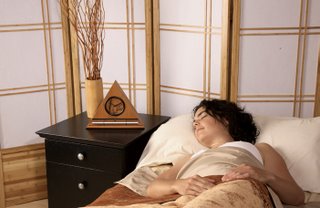 The Zen Alarm Clock's sweet acoustic chimes are truly a gourmet experience “People are going to dream whatever their background and qualifications, and it’s going to be major scientists who have the Nobel Prize-winning dreams,” she said.
She said that there were some steps people could take to focus their dreams in the right direction.
“The best steps are to write the problem down as a brief phrase of a sentence and have a pad and pen by the bed,” she said.
While you are falling asleep, Barrett said, think of the work that you have done so far in solving the problem and form an image to represent it.
“Artists say they like to set up a blank canvas at the other end of the room to suggest I’m looking for an image to paint,” she said.
Barrett suggested telling yourself you want to dream about the image as you are falling asleep.
“The last step, and this is really important, when you first wake up, stay still,” she said. “Don’t jump up and think about something else because recall for dreams is so fragile that you want to recapture it.”
Know What Is Bothering You
Barrett said that people could help determine the outcome of their anxiety dreams by trying to focus on finding a solution to what is troubling them.
“When you’re trying to solve this kind of open-ended problem, you don’t want to script the ending,” she said. “The whole point is to say I want a solution to X but you want to leave it open for your dreaming mind to come through with the solution.”
Boulder, Colorado—an innovative company has taken one of life’s most unpleasant experiences (being startled awake by your alarm clock early Monday morning), and transformed it into something to actually look forward to. “The Zen Alarm Clock,” uses soothing acoustic chimes that awaken users gently and gradually, making waking up a real pleasure.
Rather than an artificial recorded sound played through a speaker, the Zen Clock features an alloy chime bar similar to a wind chime. When the clock’s alarm is triggered, its chime produces a long-resonating, beautiful acoustic tone reminiscent of a temple gong. Then, as the ring tone gradually fades away, the clock remains silent until it automatically strikes again three minutes later. The frequency of the chime strikes gradually increase over ten-minutes, eventually striking every five seconds, so they are guaranteed to wake up even the heaviest sleeper. This gentle, ten-minute “progressive awakening” leaves users feeling less groggy, and even helps with dream recall.
What makes this gentle awakening experience so exquisite is the sound of the natural acoustic chime, which has been tuned to produce the same tones as the tuning forks used by musical therapists. According to the product’s inventor, Steve McIntosh, “once you experience this way of being gradually awakened with beautiful acoustic tones, no other alarm clock will ever do.”
adapted from abcnews.go.com
 What makes this gentle awakening experience so exquisite is the sound of the natural acoustic chime
Now & Zen – The Zen Alarm Clock Store
1638 Pearl Street
Boulder, CO 80302
(800) 779-6383
orders@now-zen.com
Posted in Bamboo Chime Clocks, Dreams, sleep, Sleep Habits
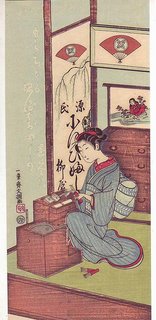 The Zen Alarm Clock transforms mornings, awakening you gradually with a series of gentle acoustic chimes Once you use a Zen Clock nothing else will do Do people choose what would make them happier? Would more money but with less sleep make you happier? A group of economists found that research participants chose what they thought would make them happier 83 percent of the time, with the majority choosing less sleep for a higher salary.
The group from Cornell University and the University of Michigan posed 13 scenarios to 2,699 people, including this question:
Say you have to decide between two new jobs. The jobs are exactly the same in almost every way, but have different work hours and pay different amounts.
Option 1: A job paying $80,000 per year. The hours for this job are reasonable, and you would be able to get about 7.5 hours of sleep on the average work night.
Option 2: A job paying $140,000 per year. However, this job requires you to go to work at unusual hours, and you would only be able to sleep around 6 hours on the average work night.
The paper, first reported by the Washington Post, studied three groups of people: 1,066 patients at a doctor’s waiting room in Denver, 1,000 adults across the country by telephone and 633 Cornell students. The American Economic Review will publish the paper.
Ori Heffetz, a Cornell economics professor who presents the paper at UCLA on Tuesday, said the most surprising finding for him was that “people’s choices seemed to coincide with their happiness predictions least frequently for what they thought were important life decisions.”
Among the respondents in Denver, 58 percent chose option one and also thought more sleep would make them happier, while 29 percent chose option two and said the higher salary would make them happier. However, 12 percent ranked option one (sleep) above option two (income) when asked what would make them happier; but they said they would most likely choose option two. Only one percent said they would choose sleep but thought they’d be happier with income.
Daniel Benjamin, economics professor at Cornell, said one of the most interesting study findings is there are systematic differences between what people think would make them happiest and what they would choose. Many researchers had believed it was obvious that people would choose what they think would make them happiest.
When asked which options they would choose, Heffetz said he would choose the higher salary because he typically needs less than six hours of sleep a night. Benjamin said it was a “tough” question, but he would choose the job that afforded more sleep.
“I don’t think I could survive on 6 hours of sleep at unusual hours,” he wrote in an email. “I need at least 8, preferably more.”
 Wake up with gradual, beautiful acoustic chimes. The Zen Alarm Clock transforms your mornings and gets you started right, with a progressive awakening Wake up refreshed, love your alarm clock, transform your mornings with The Zen Alarm Clock’s progressive awakening with gentle chimes.
The Digital Zen Clock’s long-resonating Tibetan bell-like chime makes waking up a beautiful experience – its progressive chimes begin your day with grace. When the clock’s alarm is triggered, the acoustic chime bar is struck just once … 3-1/2 minutes later it strikes again … chime strikes become more frequent over 10 minutes … eventually striking every 5 seconds until shut off. As they become more frequent, the gentle chimes will always wake you up – your body really doesn’t need to be awakened harshly, with a Zen Clock you’re awakened more gradually and thus more naturally. Unlike artificial recorded sounds coming out of a tiny speaker in a plastic box, natural acoustic sounds transform your bedroom or office environment.
adapted from abcnews.go.com by Suzanna Kim
 The Zen Alarm Clock transforms mornings, awakening you gradually with a series of gentle acoustic chimes Once you use a Zen Clock nothing else will do Now & Zen – The Soothing Alarm Clock Store
1638 Pearl Street
Boulder, CO 80302
(800) 779-6383
orders@now-zen.com
Posted in Bamboo Chime Clocks, Now & Zen Alarm Clocks, sleep, Sleep Habits
 Wake Up Slowly and Naturally with Zen Clocks - Kitagawa Utamaro A new poll on sleep habits suggests that millions of Americans are in a bad mood, short-tempered and prone to overeat because they are tired.
The National Sleep Foundation Poll, released today, finds that people say they’re much or somewhat more likely to make mistakes, get impatient or aggravated when waiting, or get upset with their children or others when they haven’t gotten enough sleep.
One fourth said they were more likely to eat more than usual on days when they didn’t get enough sleep, with slightly more women than men reporting this was common.
The poll establishes a link between how Americans sleep and “their overall behavior, mood and performance,” said Richard Gelula, the foundation’s executive director. “It shows ‘you are how you sleep.’ And it indicates that some of the problems that we face as a society, from road rage to obesity, may be linked to lack of sleep or poor sleep.”
The foundation, an independent, nonprofit organization researches sleep problems. It has conducted a poll on sleep habits each year since 1998, part of a springtime sleep-awareness campaign tied to the return of daylight- savings time, which begins Sunday.
The poll of 1,010 adults, taken between October and early December, found that nearly a quarter felt they weren’t getting the minimum amount of sleep they need to be alert the next day. Thirty-seven percent said they are so sleepy during the day that it interferes with their activities a few days each month; 16 percent said they experience this level of fatigue at least a few days a week.
Overall, sleep habits have remained fairly steady since the poll began, but the number of people reporting they sleep less than six hours a night both on weekdays and weekends rose slightly last fall, to 15 percent and 10 percent, respectively. On average, people say they are sleeping an average of 6.9 hours on weeknights and 7.5 hours on weekends.
Adults living in the West were more likely to get eight hours or more sleep on a workday than those living in the Midwest, South and Northeast.
 Once you experience the Zen Timepiece's progressive awakening, you'll never want to wake up any other way. Those who got fewer than six hours of sleep on weekdays were twice as likely to describe themselves as stressed or sad.
And people who reported often being sleepy during the day were considerably more likely than those who were never or rarely sleepy to describe themselves as dissatisfied with life (21 percent versus 7 percent) or angry (12 percent versus 4 percent).
More than half of those surveyed said they experience symptoms of insomnia a few nights a week or more; 37 percent said they snore frequently and 1 in 10 experiences pauses in breathing while sleeping.
The luxurious awakening provided by the Zen Alarm Clock is part of the growing preference for things natural—natural foods, natural fibers, and now, natural acoustic sounds. Like organic tomatoes in your salad, the organic sounds of the Zen Alarm Clock’s sweet acoustic chimes are truly a gourmet experience.
What makes this gentle awakening experience so exquisite is the sound of the natural acoustic chime, which has been tuned to produce the same tones as the tuning forks used by musical therapists. According to the product’s inventor, Steve McIntosh, “once you experience this way of being gradually awakened with beautiful acoustic tones, no other alarm clock will ever do.”
adapted from sfgate.com by Lee Bowman, Scripps Howard News Service
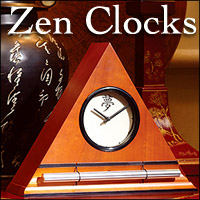 Why be Startled Awake -- Choose the Gentle Chime Alarm Clock for a Progressive Awakening Now & Zen – The Gentle Chime Alarm Clock Shop
1638 Pearl Street
Boulder, CO 80302
(800) 779-6383
Orders@now-zen.com
Posted in Bamboo Chime Clocks, Insomnia, sleep, Sleep Habits
 Can an alarm clock be bad for your health? According to Research by the National Institute of Industrial Health in Japan, despite the popularity of using an alarm clock, waking up to a jolting noise can be bad for your heart. Waking up abruptly can cause higher blood pressure and heart rate. Besides increasing your blood pressure, an alarm can add to your stress levels by getting your adrenaline rushing.
The solution to this health-harming problem is to instead try gradually waking up to natural light or to The Zen Alarm Clock which has soothing chime sounds. It may not be simple, but this replacement method sounds better than shrills from your alarm clock.
One of the ultimate Zen like experiences is waking-up from a great slumber refreshed and energized. Your mind and body are harmoniously one, both alert and focused. Having a refreshed mind and body are two keys to a natural and Zen lifestyle. Waking up in the morning should not be a loud and abrupt awakening, but rather it should be a peaceful positive experience. The right natural alarm clock can transition your deep and tranquil sleep into a serene start to consciousness. Imagine a long-resonating Tibetan bell-like chime waking you up to a beautiful morning experience.
The right alarm clock can be the most beneficial investment for you. With our Now & Zen natural alarm clock you are awakened more gradually and thus more naturally. Now & Zen is focused on creating a naturalistic lifestyle, and our clocks are an example of our philosophy.
 The Zen Alarm Clock transforms mornings, awakening you gradually with a series of gentle acoustic chimes Once you use a Zen Clock nothing else will do Now & Zen – The Soothing Alarm Clock Store
 The Calming Alarm Clock Store - Boulder, CO 1638 Pearl Street
Boulder, CO 80302
(800) 779-6383
orders@now-zen.com
Posted in Bamboo Chime Clocks, sleep, Sleep Habits
 Being Kept Awake - What to Do? Ukiyoe Hokusai It’s annoying enough to be kept awake by a music-blaring neighbor, but when it’s you who is sabotaging your own opportunity for rest, it really makes a girl want to scream…and cry from exhaustion.
Stress-induced insomnia is rampant these days among 20- and 30-something women. Thanks to job and money craziness, hectic social schedules, and the pressure to be totally together, the typical chick is more tense than ever, and that means she’s getting less sleep than her body needs, explains Joyce Walsleben, PhD, associate professor of medicine at the New York University School of Medicine and coauthor of A Woman’s Guide to Sleep.
Here, we explain how stress messes with your nocturnal schedule. Plus, we give tips to help you quiet your reeling brain and racing heart so you can get the R & R you need.
How Chronic Stress Screws Up Your System
It should be simple: You are tired and it’s bedtime, so you drift away within minutes of putting head to pillow. But when you’re stressed, things go haywire, and the exact opposite happens instead. Being even a little anxious can make your muscles tense, prompt your body to release the stress hormones cortisol and adrenaline, and elevate your heart rate.
You can feel these effects when you’re worried during the day. But at night, they have a stronger impact, overriding your ability to sleep or preventing you from staying asleep so you wake in the middle of the night, says Thomas Roth, PhD, director of the sleep center at the Henry Ford Hospital, in Detroit. Even if you do manage to snooze, stress will make the rest you get more fitful. Plus, you’ll spend more time in the lighter stages of sleep rather than in deeper slow-wave and REM sleep, which leaves you vulnerable to waking in the middle of the night, explains Barry Krakow, MD, medical director of the Maimonides Sleep Arts and Sciences, in Albuquerque, New Mexico, and author of Sound Sleep, Sound Mind.
Why Women Have It Rougher
Hormonal shifts may make a woman more susceptible to anxiety during certain points in her cycle, such as during her preperiod week. But insomnia is also caused by the way so many chicks run their lives: cramming a ton of tasks and responsibilities into their schedules and not saying no to bosses, friends, and family members who ask them to take on more, says Walsleben.
When you’re juggling a zillion things all day, it’s almost impossible to chill out at night — especially since the time you’re waiting to fall asleep may be one of the only free moments during which you can contemplate your life. If you’re stressed, thoughts and worries will flood your mind, triggering physiological changes incompatible with drifting off.
 Wake up with gradual, beautiful acoustic chimes. The Zen Alarm Clock transforms your mornings and gets you started right, with a progressive awakening The Snowball Effect
If stress kept you up only once every so often, it wouldn’t be that big of a deal. Unfortunately, it’s the snowball effect that makes the stress-sleeplessness trap so pernicious. “It’s called psychophysiologic insomnia,” says Walsleben. “After worrying about how you got no sleep the night before, you get into bed early the next night, worried that it’ll happen again. But this panic produces brain activity that makes it even harder to sleep, and the cycle continues for days, even weeks.”
Besides leaving you tired and cranky, insomnia also decreases your immunity, makes you forgetful, and can even lower your metabolism so you pack on pounds. It’s a health issue that affects your entire body, Walsleben adds. Beating the Stress/No-Sleep Cycle
Getting a handle on this kind of insomnia means learning how to reduce your stress levels during the day and keeping yourself from wigging out at night. These anxiety reducers will help.
Unplug yourself. Always being hooked up to your cell and social- networking sites boosts anxiety because you’re constantly anticipating the next call, text, or message. “Turning off your gadgets for an hour or two before you hit the sheets gives your brain time to turn off as well,” explains Allen Elkin, PhD, director of the Stress Management and Counseling Center, in New York City, and author ofStress Management for Dummies.
Take a nap. It sounds counterproductive, but a 30-minute nap will lower levels of cortisol, so you’ll wake up feeling less anxious. Try to nap before 2 p.m., when it’s less likely to cut into your regular sleep hours.
Write a been-done list. Instead of a to-do list, jot down everything you’ve accomplished at the end of the day, even small tasks. Seeing the list in writing will remind you that your life is less frazzled and out of control than you think it is, and that’ll help you chill.
Set a daytime worry slot. Late in the afternoon, take 20 minutes to think about only whatever it is that’s making you nervous at the moment. “Worries are never as bad in the day as they are at night, so you’re more likely to put things in perspective and come up with a plan of action,” says Walsleben.
Sink into sleep. While you’re lying there, obsessing over whether sleep will ever come, ease your nervous system with this trick: Imagine the muscles in your feet relaxing and melting into your mattress. Picture the same scenario with your calves, then your thighs, until you have worked your way up your entire body. In addition to relaxing your muscles, it’s a visualization tactic that calms your brain as well.
Take advantage of being up at night. Instead of freaking out about how tired you are going to be in the morning, treat your being awake at 2 a.m. as a lucky break, giving you time to enjoy soothing activities like reading. By viewing insomnia as a positive thing, you’ll have nothing to stress about, and paradoxically, you will likely have trouble keeping your eyes open much longer.Sleep Tricks
Below, little tactics that bring on the zzz’s and some that backfire.
What Works
Taking a hot bath before bed. Besides being relaxing in its own right, the steamy water also raises your core body temperature, and the subsequent drop in body temperature after you leave the tub puts you in hibernation mode.
Sipping a cup of warm milk. The warmth is comforting, but it’s really the milk that has a soporific effect. Milk contains tryptophan, an amino acid that is converted into serotonin — a body chemical in the brain that makes you drowsy.
Playing quiet, soothing music. Folk, classical, and even lite-FM tunes that maintain a steady pitch and rhythm have a lulling effect on your system.
What’s Bunk
Exercising close to bedtime. Working out prompts the release of adrenaline and endorphins, hormones that keep you awake. Better to hit the gym at least three to four hours before you go to sleep so you give your body time to cool down and the hormone rush time to subside.
Having a drink. Alcohol can make you sleepy initially, but it will likely wake you up later as your body metabolizes the booze.
Snacking late at night. It varies depending on the type of food, but in most cases, eating will just pep you up. Even a rich, heavy snack that leaves you feeling woozy at first may cause you to wake in the middle of the night as your body digests the fat.
Wake up refreshed, love your alarm clock, transform your mornings with The Zen Alarm Clock’s progressive awakening with gentle chimes.
Boulder, Colorado—an innovative company has taken one of life’s most unpleasant experiences (being startled awake by your alarm clock early Monday morning), and transformed it into something to actually look forward to. “The Zen Alarm Clock,” uses soothing acoustic chimes that awaken users gently and gradually, making waking up a real pleasure.
Rather than an artificial recorded sound played through a speaker, the Zen Clock features an alloy chime bar similar to a wind chime. When the clock’s alarm is triggered, its chime produces a long-resonating, beautiful acoustic tone reminiscent of a temple gong. Then, as the ring tone gradually fades away, the clock remains silent until it automatically strikes again three minutes later. The frequency of the chime strikes gradually increase over ten-minutes, eventually striking every five seconds, so they are guaranteed to wake up even the heaviest sleeper. This gentle, ten-minute “progressive awakening” leaves users feeling less groggy, and even helps with dream recall.
Source: Registered nurse Joyce Walsleben, PhD
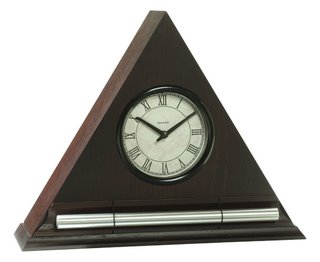 Progressive Chime Awakening - Choose the Most Natural Way to Wake Up Now & Zen – ‘The Most Natural Way to Wake Up’ Clock Shop
1638 Pearl Street
Boulder, CO 80302
(800) 779-6383
orders@now-zen.com
Posted in Bamboo Chime Clocks, sleep, Sleep Habits, zen, Zen Alarm Clock
« Previous Page — « Previous Entries
Next Entries » — Next Page »
|
|
|
|